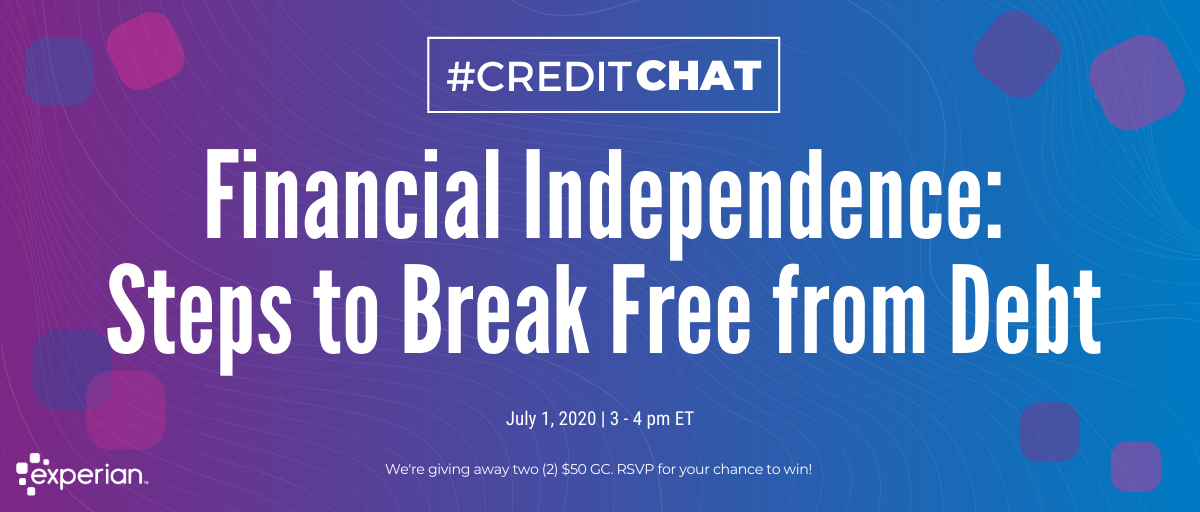Financial Independence: Steps to Break Free from Debt
The panel included Rod Griffin: Senior Director, Consumer Education and Advocacy, Experian; Forbes Advisor; James Lambirdis: Founder and CEO of DebtMD; Beverly Harzog: Credit Card Expert and Consumer Finance Analyst for U.S. News; Paulina Likos: Investing Reporter at U.S. News; Leslie H. Tayne, Esq: Founder and Managing Director of Tayne Law Group, P.C. (f/k/a The Law Offices of Leslie H. Tayne, P.C.); Alicia R. Hudnett Reiss: CERTIFIED FINANCIAL PLANNER™; Todd Christensen: Education Manager at Money Fit by DRS; Alexandria White: Credit Cards Reporter at CNBC Select; Emily Pandise: Producer, Business/Tech/Media Unit, NBC News; Ryan Derousseau: Freelance writer, Journalist, and Author; Sara Rathner: Credit Card and Travel Expert, NerdWallet; Molly Ford-Coates: Founder, Ford Financial Management; and Tara Mastroeni: Freelance Real Estate & Personal Finance Writer.
Questions We Discussed:
Q1: What are some ways to be more organized with your finances?
Q2: How do you decide which debt to pay off first?
Q3: What are some tricks to help you stick to your budget?
Q4: What are some ways to get extra money to pay off debt?
Q5: What are some tips for negotiating credit card debt?
Q6: Should you pay off your debt or save for emergencies first?
Q7: What are some ways to help you track your debt repayment progress?
Q8: How does paying off debt affect your credit score?
Q9: What are some strategies to avoid getting into debt?
Q10: Any last-minute tips on becoming debt-free and reaching financial independence?
Retweet these insights from our community:
A1a: Set financial goals. Before you can organize your finances, it’s crucial to know what you want to accomplish. Whether you want to pay down your debts, build up an emergency fund, or save up for a down payment, having a concrete goal will help you stay focused. #CreditChat
— taramastroeni (@TaraMastroeni) July 1, 2020
A2: There’s several methods you can go for, such as snowball or avalanche, but it ultimately decides on the size of your debt and how much you can afford to repay each month. I recommend opting to repay the highest cost debt first, so you can save the most on interest #CreditChat https://t.co/t1zj26xOI0
— Alexandria White (@awhite_credit) July 1, 2020
A3: Make a list and stick to it when you shop. For larger purchases (or unplanned purchases), take a couple days to think it over before you make the purchase. #creditchat
— Ashley Jacobs (@collegecents) July 1, 2020
A4: There are ample opportunities to make extra money:
📌Tutor on a subject you’re skilled at
📌Pick up an extra shift at work
📌Create an online business
📌Join the gig economy!#CreditChat— Paulina Likos (@Paulina_Likos) July 1, 2020
A5: This may sound simple, but Ask. You could ask for a lower and more competitive interest rate. This is of course easier when you pay on time. And you could also share any other special credit offers you’ve received to see if they’ll match it. #creditchat
— Kembala Evans (@Kembala) July 1, 2020
A6: Do both. Put more money towards whichever goal is higher on your financial priority list, but you shouldn’t just choose one or the other. Paying off debt and saving for emergencies are both important for achieving financial independence! #CreditChat pic.twitter.com/t8oT0L6QRi
— American Consumer Credit Counseling (@ACCC_TalkCents) July 1, 2020
A7: Tracking your debt repayment progress can be as simple as having an Excel sheet. You don’t really need any expensive software for budgeting and keeping track of debt. #CreditChat
— American Consumer Credit Counseling (@ACCC_TalkCents) July 1, 2020
A8. Utilization rate is the second most important factor in your credit scores, so if you have substantial credit card debt, paying it off will almost certainly improve your credit scores. https://t.co/oqMGBhEm0Q #CreditChat
— Jennifer White (@Jennifer_Wwhite) July 1, 2020
A9: Best practice for avoiding credit card debt altogether: Only charge what you can afford and pay off the balance each month. #CreditChat
— Financial Beginnings USA (@finbeg) July 1, 2020
A10: Financial freedom is not just about dollars and cents; it’s a state of mind. By getting out of debt and by prioritizing your spending on what really matters, you will build a stronger and more resilient foundation for your own life and for those you love. #CreditChat https://t.co/eXKHgv3igJ
— Forbes Advisor (@ForbesAdvisor) July 1, 2020
